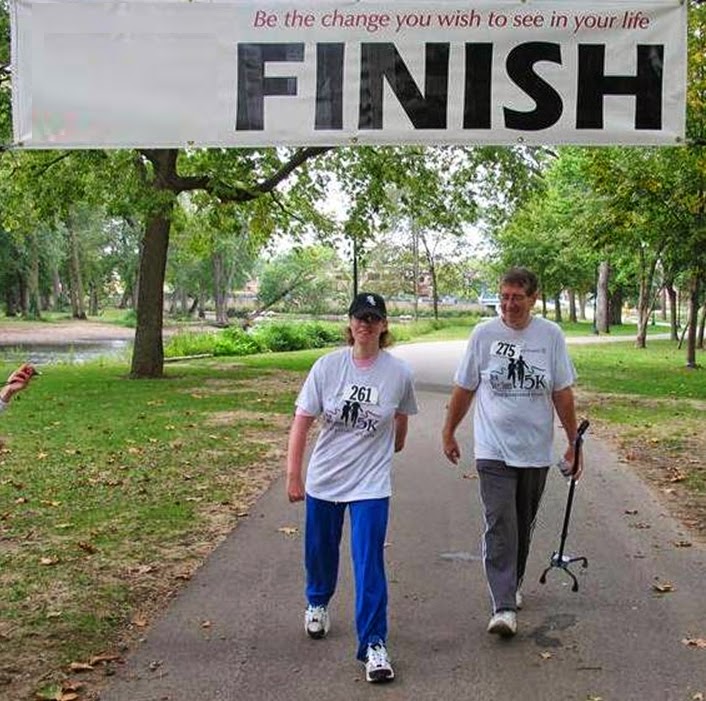 |
| Peter G. Levine Stronger After Stroke |
 I'm always pretty confused about when recovery ends. I haven't had a stroke, so I only know what I've heard. For some people it ends when therapy ends. In fact it's pretty common that once therapy ends some people actually declined to various degrees. But some people seem to trudge onward. I hear this a lot; "I've been at it for three years, and I'm still making progress. It's a long road – but it's worth it."
I'm always pretty confused about when recovery ends. I haven't had a stroke, so I only know what I've heard. For some people it ends when therapy ends. In fact it's pretty common that once therapy ends some people actually declined to various degrees. But some people seem to trudge onward. I hear this a lot; "I've been at it for three years, and I'm still making progress. It's a long road – but it's worth it."Stroke survivors typically will believe that recovery ends when they're able to do so much with their life that you're too busy living to continue with recovery.
But just like an athlete trying to get better, a little means a lot. This is the thing that clinicians often don't know. They think that the world is binary – that you're either functional or nonfunctional. That is you're either able to do the task, or you're not. I've always thought it should be more nuanced than that; little bits of movement are important irrespective of the function. It probably comes from my involvement in research. In research you measure little bits of "better" movement.
What good is "better" movement? What does it get you?
Better movement means …
- less spasticity
- better bloodflow (when muscles contract there is "venous return" of blood back towards the heart.
- Better cardiovascular health processes the more you move, the stronger your heart gets)
You get the idea. More movement generally means more health. And that health is measurable. It's measurable in terms of...
- a reduced heart rate
- less chance of falling
- the ability to fight infection better etc. etc.
So call it what you will.
- Recovery.
- Exercise.
- VisionQuest.
- Safety.
- Antiaging.
See the original article:
in


No comments:
Post a Comment